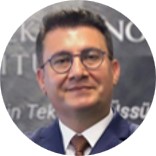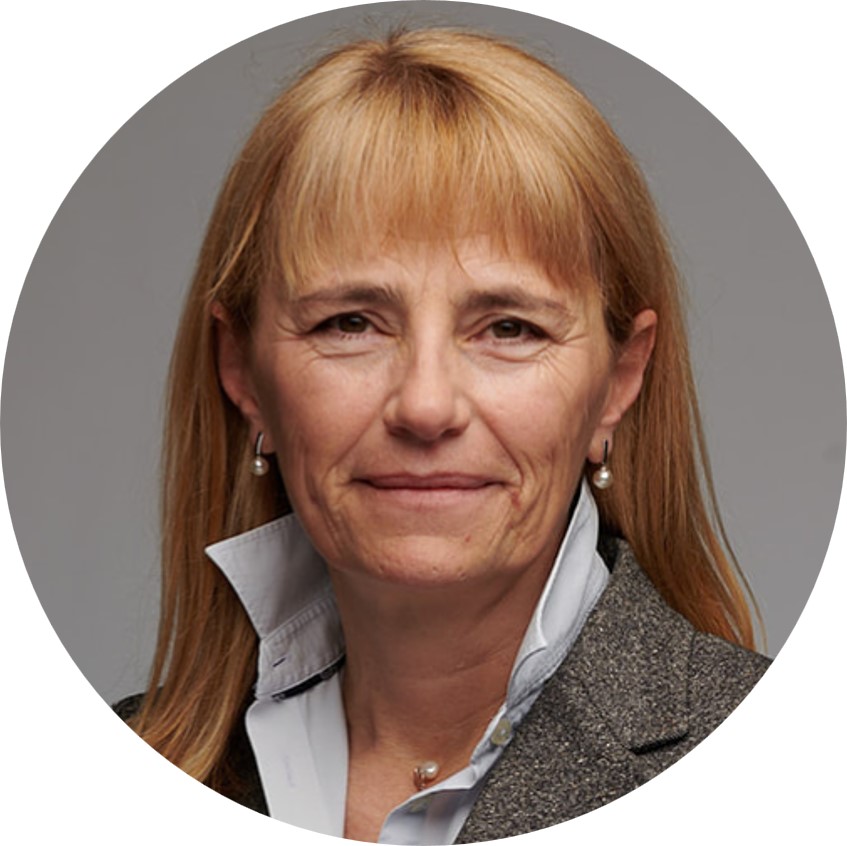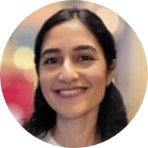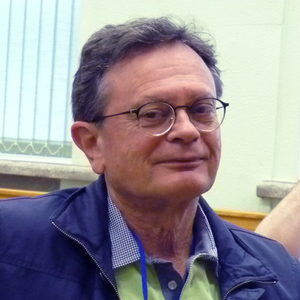
YSF Speakers
Keynote speakers

Seamus Martin holds the Smurfit Chair of Molecular Genetics at Trinity College Dublin, Ireland (since 1999). The Martin laboratory is interested in all aspects of programmed cell death, especially the links between cell death, inflammation and cancer. His group is currently exploring the molecules that regulate the decision to undergo apoptosis or enter premature replicative senescence upon exposure to chemotherapeutic drugs. Seamus was elected to The Royal Irish Academy of Sciences in 2006, to the European Molecular Biology Organization (EMBO) in 2009 and to Academia Europaea in 2023. He served as President of the European Cell Death Organization (ECDO) from 2016 to 2018 and was awarded an ERC Advanced grant in 2021. He is an author of the 11th, 12th and 13th Editions of the classic Immunology textbook ‘Essential Immunology’ and has served as Editor-in-Chief of The FEBS Journal since 2014.
Keynote Lecture: ‘DNA damage-induced cell death versus cell senescence: what doesn’t kill you, makes you stranger’

Isabel Fabregat has been a research Professor at the Bellvitge Biomedical Research Institute (IDIBELL), in Barcelona, Spain, since 2004. Her group is also incorporated into the CIBER of Hepatic and Digestive Diseases (CIBEREHD, Spain). Her research group is interested in the molecular mechanisms that regulate liver physiology and pathology (mainly fibrosis and cancer), with particular interest in the role of transforming growth factor-beta (TGF-β) and the epidermal growth factor receptor (EGFR) pathways. Recent contributions have been also focused on NADPH oxidases (NOX) family, which are regulated by both TGF-β and EGFR pathways. Isabel coordinated a European Network to study the role of inhibiting TGF-β in liver pathologies (IT-LIVER). She was the president of the Spanish Society for Cell Biology and has been involved in different activities linked to the Spanish Society of Biochemistry and Molecular Biology (SEBBM). She has been part of the FEBS Publications Committee since 2022.
Keynote Lecture: ‘TGF-beta and NADPH oxidases: a perverse association in liver cancer’

Colinda Scheele has been a group leader at the VIB Center for Cancer Biology since June 2020 and an Assistant Professor at KU Leuven's Department of Oncology, Belgium, since 2021. She earned her Master’s in Biomedical Sciences from Utrecht University and completed her PhD from the Hubrecht Institute and the Netherlands Cancer Institute. Her doctoral research significantly advanced mammary gland biology, particularly in identifying mammary stem cells' roles during pubertal development. Colinda's lab at VIB focuses on the dynamics between cancer cells and their host tissue. Her team employs cutting-edge techniques such as intravital imaging and organoid technology to study primary and metastatic cancer in real-time. They developed an image-guided spatial sequencing method that revealed oncogenic mutations in healthy breast tissue surrounding tumors, indicating early transformation. Colinda's research is supported by various national and international grants, including those from FWO, Stichting tegen Kanker, NIH, and ERC. She has received multiple awards, such as the BAEF alumni award (2024), Beug Prize for Metastasis Research (2023) and a FEBS Excellence Award (2022).
Keynote Lecture: ‘How breast tissue defends itself: insights into cancer protection mechanisms’

Ugur Sezerman is a Professor at Acıbadem University, Istanbul, Türkiye. He studied engineering in Türkiye and obtained a PhD at Boston University Biomedical Engineering Dept, USA. He established the first Bioinformatics graduate and undergraduate programs in Türkiye at Sabanci University then moved to Acibadem University School of Medicine to establish the first Clinical Bioinformatics Program. He is especially focused on developing algorithms for multi omics data analysis, identification of individualized disease aetiology and therapy targets via network-based analysis of omics data analysis, personalized medicine and wellness bioinformatics. He has over 170 publications, with 1500 citations. Ugur is involved in several EU projects, including the European Joint Project on Rare Diseases project (EJPRD) responsible for developing pathway based analysis tools for rare disease data, IT Future of Cancer ITFOC ERA-Net project on Personalized Cancer, DigiTwins Flagship application, CHARME Cost Action on Harmonization of Standards, and BEAT-Primary Ciliary D COST Action. He is also the founder of three SMEs: Epigenetiks Inc where he is providing services to several hospitals on omics data analysis for diagnostics and personalized therapy; Eternans Ltd UK, which is designing peptide-based drugs for cancer, COPD and CKD; and Nurture Welness LLC USA which is providing omics data and AI-based personalized wellness services.
Keynote Lecture: ‘Personalized medicine in the era of omics data'
Career speakers

Yusuf Baran earned his Master's degree and his PhD in molecular biology from the Middle East Technical University, Ankara, Türkiye, and he also conducted research as a NATO scholar at the Medical University of South Carolina, USA, during 2005–2006. He has led over 40 scientific research projects, published 500+ articles and presented at hundreds of conferences globally, including forums such as the United Nations and the World Economic Forum. His accolades include more than 100 awards, notably the "Young Scientist Award" from the World Economic Forum in 2013 and the "Science Diplomacy Award" from the World Academy of Sciences in 2023. Since November 2018, he has served as the Rector of İzmir Institute of Technology and is involved with various academic and scientific organizations, focusing on science and technology policies and science diplomacy.
Topic: Science diplomacy

Jerka Dumić is Professor of Biochemistry and Immunology at the University of Zagreb's Faculty of Pharmacy and Biochemistry, Croatia. Her research primarily focuses on glycoimmunobiology, exploring the roles of carbohydrates in immune responses and identifying novel biomarkers for diagnostic and prognostic purposes in various diseases. Her work has contributed to advancements in understanding complex biological processes, particularly in pathophysiological conditions. She has held various significant positions, including Head of the Dept of Biochemistry and Molecular Biology from 2012 to 2017 and Dean of the Faculty from 2014 to 2016. In addition to her academic responsibilities, Jerka is passionate about science education and actively involved in professional societies. She served as Secretary General (2001–2007) and President (2009–2013, 2019–2021) of the Croatian Society of Biochemistry and Molecular Biology. Currently, she is the Chair of the FEBS Integration and Networking Committee and a member of the FEBS Executive Committee, reflecting her commitment to fostering collaboration within the biochemical community.
Topic: PhD mentor and mentee roles

Keith Elliott has spent 40 years teaching and researching, mainly in the areas of metabolism and enzymology at the University of Manchester, UK, developing a particular interest in education and career development. He has chaired the Education Committee and been Careers Advisor for the UK Biochemical Society. He was a founder member of the FEBS Education Committee and has run workshops on educational methods and career development in 30 FEBS countries. He has been running CV support sessions at the YSF since 2007 and was awarded the FEBS Diplôme d’honneur in 2014 for his contributions.
Topic: CV preparation

Hajrah Khawaja has been an Editor at The FEBS Journal since 2023. Before embarking on a career in scientific publishing, she was a postdoctoral researcher at Queen’s University Belfast, UK, where her research focused on investigating mechanisms of drug resistance and identifying novel therapeutic targets in KRAS mutant cancers.
Topic: Careers in scientific publishing

Alain Krol is Director of Research emeritus at the CNRS and Professor conventionné at the University of Strasbourg, France. He served as a FEBS Fellowships Committee member for four years (2013–2016) and has been the Chair of the committee (now called the FEBS Excellence Awards and Fellowships Committee) since 2017. From the beginning of his career, his research interests have been centred on the function and structure of various RNAs and RNA–protein ensembles involved in RNA maturation and translation..
Topic: FEBS Fellowships

Jason Perret is professor emeritus of the Free University of Brussels (ULB) Medical Faculty, Belgium. Besides 35 years of basic and translational medical research, he also spent 4 years in industry as head of the Molecular Biology lab at Baxter Healthcare research facility in Belgium. He spent 10 years supervising and managing Biochemistry wet labs and 15 years teaching Molecular Biology to medical, biomedical and veterinary students but also to Biomedical Civil Engineers. He has also supervised or co-supervised PhDs, MD clinician-researchers and 40 Biomedical and Medical Master's theses. Jason is currently President of the Belgian Society for Biochemistry and Molecular Biology. He has also been with FEBS since 2003 as a member of the FEBS Education Working Group and then Committee, and actively contributing to FEBS education activities such as presenting talks and workshops on various topics.
Topic: Good scientific practice

Daniele Viarisio currently works as Senior Programme Officer in the EMBO Fellowship Programme. After a PhD focused on the study of drug resistance in cancer cell lines at the University of Turin, Italy, Daniele joined the German Cancer Research Center in Heidelberg to investigate the role of the human papillomavirus in skin carcinogenesis and to establish new diagnostic tools to predict the incidence of HPV-induced head and neck cancer. After a short career break to acquire new soft skills, running after his kids and getting settled down, he initially joined EMBO in early 2022 to shape the process of the collection of source data for EMBO Press and then started working at the EMBO Fellowship Programme where he supports the head of the office and the scientific committees in improving the different schemes, in organizing and chaperoning outreach meetings, and in evaluating the applications for the long-term fellowships.
Topic: EMBO funding opportunities for PhD students and postdoctoral researchers



